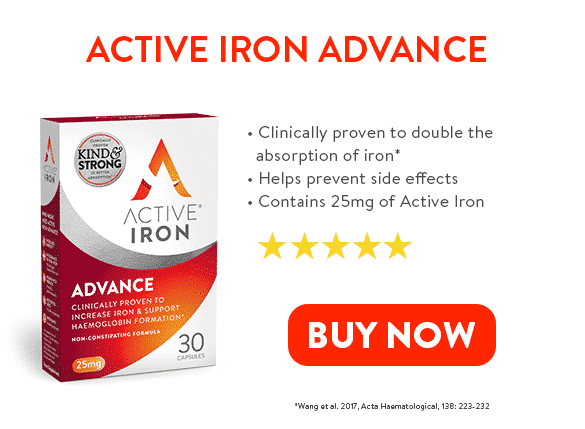The immune system is our body’s natural defence system that protects us from many pathogens including bacteria, viruses, fungi, and protozoa. Lately, there has been an increase in support for maintaining a healthy immune system. For your own health and the health of those around you, it’s important to have a healthy immune system. There are a number of naturally occurring vitamins and minerals that support our immunity. New research shows that Vitamin D supplements may help to boost your immune system. Vitamin C, Zinc and Iron have long been established in their role of supporting a healthy immune system.
What is your immune system and how does it work?
The immune system is made up of innate immune defences, the ones that we are born with and adaptive immune defences, the ones we acquire during our lifetime. The innate immune system is the body’s first line of defence and is quick to respond to threats. This innate immunity includes reactions like fever, swelling and secretions including sweat and mucus.
The innate immune system also includes several immune cells (macrophages, neutrophils, NK cells). These cells are not specific to an individual pathogen.
The adaptive immune system is slower to respond but is much more specific. This is because these cells can develop antibodies against the pathogens that have been encountered before, which allow them to be more efficient in the second or subsequent encounter.
If you’re looking for a high quality immune system supplement, we’ve just launched Active Immune, it’s specially designed to help you maintain a healthy immune system. You can purchase it here
What weakens your immune system
The quality of your body’s immune response is determined by health, nutrition, lifestyle e.g. stress and sleep, and age.
Too little sleep has been found to weaken the immune system, this is because the body releases a certain type of protein called cytokines that help the immune system only when you are asleep. These cytokines help create the antibodies that are needed to fight an infection.
Stress has also been found to lower your immunity particularly with viruses such as herpes and shingles. Research also suggests that stress can make it more difficult to fight off the flu virus.
A diet that is low in fruit and vegetables has also been associated with a weakened immune system. Your body required essential nutrients such as Zinc, Vitamin A, C and E from these sources to support your immune system.
Alcohol, cigarettes and vaping can also weaken your immune system. The chemicals found in cigarettes and e-cigarettes have been found to suppress the immune system.
Over consuming alcohol has been found to suppress your immune system for up to 24 hours.
Recharging the immune system
Rest is a simple and free way to recharge your immune system, providing your body with adequate recovery time through rest and sleep allows your body to create the antibodies needed to fight an active infection.
Aerobic exercise has been found to improve the function of your immune system; this may be due to the improved blood flow bringing a greater distribution of immune cells. Moderate, habitual exercise has been found to improve overall immune system function and delay age related immune system dysfunction.
A balanced diet is one of the best ways to support your immune system and provide the nutrients your body needs. These essential vitamins and minerals are not made by your body so must be consumed. If you suspect your diet may not be providing you with immune supporting vitamins such as vitamin C, Zinc, Iron and Vitamin D, or you are unable to absorb the nutrients from food alone, you may choose to supplement.
Can supplements help boost your immune system?
As outlined above, supplements are not a substitute for a balanced diet and a healthy lifestyle. The body can absorb and regulate its requirement for vitamins and minerals more easily from food sources. Not all vitamin and mineral formulations are equal. Some iron supplements for example may cause side effects such as bloating, constipation or stomach upset.
Other nutrients are best absorbed in food form for safety reasons, vitamin E for example is not recommended for those on certain blood thinning medications. While others such as probiotics in theory can help with gut function which may improve your immune health overall but lack the research to prove their effect on improving your immunity.
If for some reason you find that you are unable to meet your body’s need through food alone then you may decide to supplement some or many of the immune supporting vitamins and minerals your body needs e.g. Vitamin C, Vitamin D, Iron and Zinc.
Best supplements to help you boost your immune system
There are many ‘immune boosting’ supplements on the market, however only a few of these supplements have been scientifically proven to support your immune system in a measurable way.
Nutrients including Vitamin C, Vitamin D, Zinc and Iron have been proven to support immunity. Active Iron’s ground-breaking iron supplement provides clinically proven, high absorption of iron, while simultaneously being gentle on the stomach*.
New Active Immune provides high potency Vitamin D (2000iu) with high dose Vitamin C and an optimal dose of Zinc to support a healthy immune system.
Vitamin D
Vitamin D is known as the sunshine vitamin, this is because our body can synthesize vitamin D with adequate sun exposure. It can be difficult to maintain Vitamin D levels particularly in the Northern countries and during winter months when exposure to sunshine is limited.
Active Immune provides 2000IU of Vitamin D in Vitamin D3 (cholecalciferol) format to support healthy immune function.
Iron
Iron is essential to life for both men and women; as well as supporting immune function, it helps reduce tiredness and fatigue, plays an important role in normal energy metabolism, oxygen transport, cognitive function, and formation of red blood cells.
Iron and immunity are closely linked, it is required by the body for both first and secondary immune response. Iron plays an important role in the immune system and iron stores are carefully controlled by the body.
Vitamin C
Vitamin C is an important vitamin found in many fruit and vegetables including broccoli, bell pepper and citrus fruit. It is an essential water-soluble vitamin which means your body must consume Vitamin C every day. Vitamin C is key in supporting a healthy immune system.
Active Immune contains the optimal dose of Vitamin C to support a healthy immune function.
Zinc
Zinc is an essential mineral that plays many important roles in our bodies including maintenance of bones, skin, hair and nails; carbohydrate metabolism; cognitive function; fertility and reproduction; and vision support.
Zinc has an essential role to play in supporting a healthy immune function. Active Immune contains 20mg of Zinc, this form of supplemental Zinc is easily absorbed.
Conclusion: Immune Boosting Supplements
The immune system is a complex and adaptable system. To support a healthy immune function, your body requires a balanced diet and a healthy lifestyle that includes rest, exercise, sleep, and adequate nutrition to provide a variety of vitamins and minerals.
If you are unable to meet your daily requirements for these essential nutrients, you may decide to supplement. When choosing a supplement, it is important to find one that is kind on your stomach and strong on absorption.
Active Immune provides a Vitamin D, Vitamin C and Zinc supplement to support your immune system. Active Iron provides your daily iron requirement to support both your first and second line of defence against pathogens including bacteria, viruses and fungi.
References:
● American Psychological Association: “Stress Weakens the Immune System.”
● BMJ Journals Thorax: “Pro-inflammatory effects of e-cigarette vapour condensate on human alveolar macrophages.”
● CDC: “Alcohol and Public Health,” “Marijuana and Public Health,” “Medications that Weaken Your Immune System and Fungal Infections.”
● Harvard Medical School Division of Sleep Medicine: “Sleep and Disease Risk.”
● Indian Journal of Medical and Paediatric Oncology: “Harmful effects of nicotine.”
● Mayo Clinic: “Lack of sleep: Can it make you sick?”
● PlosONE: “Exposure to Electronic Cigarettes Impairs Pulmonary Anti-Bacterial and Anti-Viral Defenses in a Mouse Model.”


